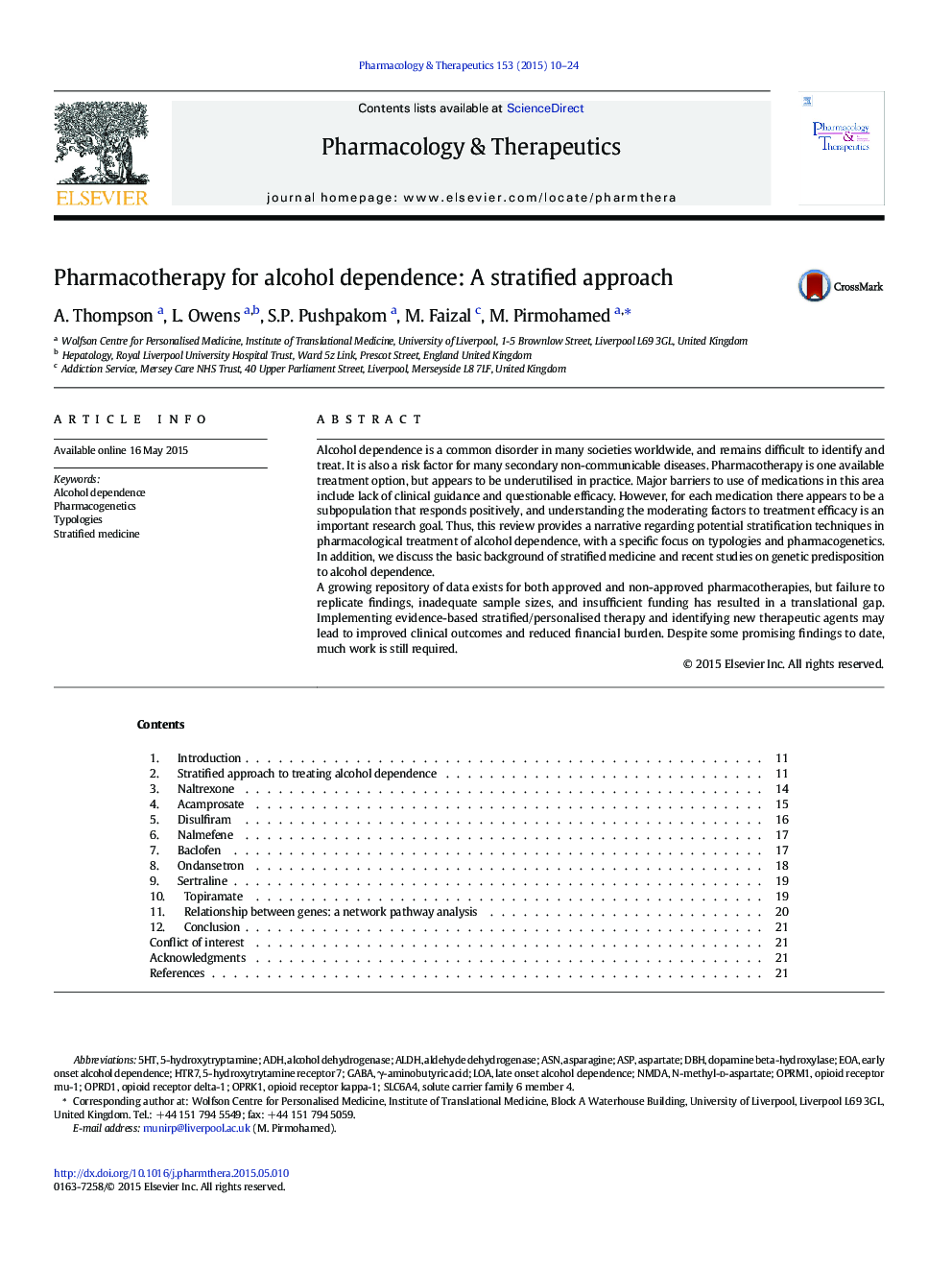| Article ID | Journal | Published Year | Pages | File Type |
|---|---|---|---|---|
| 2563542 | Pharmacology & Therapeutics | 2015 | 15 Pages |
Alcohol dependence is a common disorder in many societies worldwide, and remains difficult to identify and treat. It is also a risk factor for many secondary non-communicable diseases. Pharmacotherapy is one available treatment option, but appears to be underutilised in practice. Major barriers to use of medications in this area include lack of clinical guidance and questionable efficacy. However, for each medication there appears to be a subpopulation that responds positively, and understanding the moderating factors to treatment efficacy is an important research goal. Thus, this review provides a narrative regarding potential stratification techniques in pharmacological treatment of alcohol dependence, with a specific focus on typologies and pharmacogenetics. In addition, we discuss the basic background of stratified medicine and recent studies on genetic predisposition to alcohol dependence.A growing repository of data exists for both approved and non-approved pharmacotherapies, but failure to replicate findings, inadequate sample sizes, and insufficient funding has resulted in a translational gap. Implementing evidence-based stratified/personalised therapy and identifying new therapeutic agents may lead to improved clinical outcomes and reduced financial burden. Despite some promising findings to date, much work is still required.
